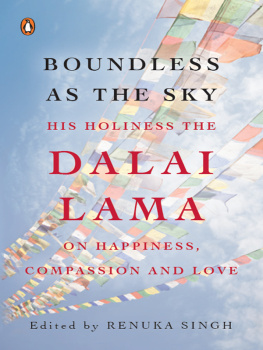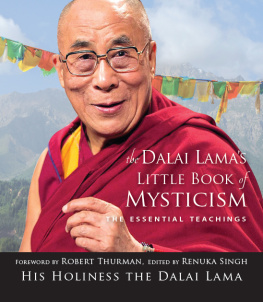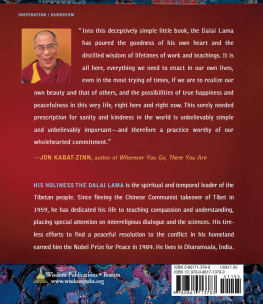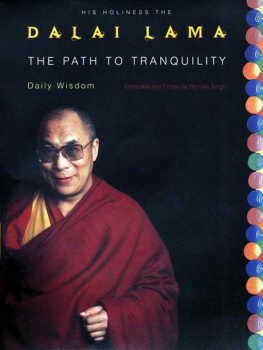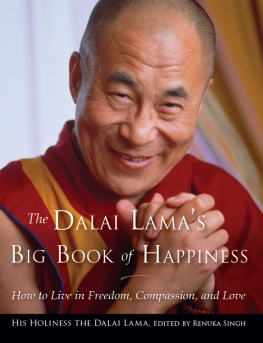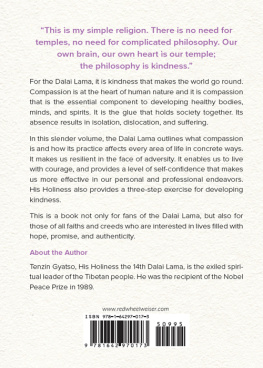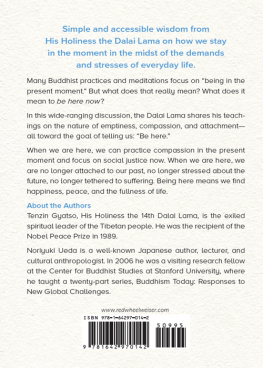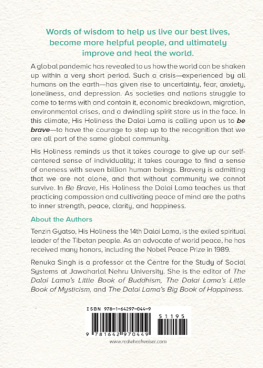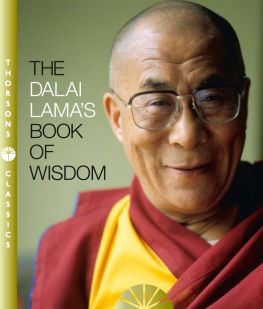PENGUIN ANANDA
UK | Canada | Ireland | Australia
New Zealand | India | South Africa
Penguin Books is part of the Penguin Random House group of companies whose addresses can be found at global.penguinrandomhouse.com.
This collection published 2013
Copyright Renuka Singh 2013
The moral right of the author has been asserted
Jacket images Getty Images
ISBN: 978-0-143-42116-0
This digital edition published in 2016.
e-ISBN: 978-9-351-18192-7
This book is sold subject to the condition that it shall not, by way of trade or otherwise, be lent, resold, hired out, or otherwise circulated without the publishers prior consent in any form of binding or cover other than that in which it is published and without a similar condition including this condition being imposed on the subsequent purchaser.
THE BEGINNING
Let the conversation begin...
Follow the Penguin Twitter.com@PenguinIndia
Keep up-to-date with all our stories YouTube.com/PenguinIndia
Like Penguin Books on Facebook.com/PenguinIndia
Find out more about the author and
discover more stories like this at penguinbooksindia.com
PENGUIN ANANDA
BOUNDLESS AS THE SKY
Tenzin Gyatso, His Holiness the fourteenth Dalai Lama of Tibet, is the spiritual and temporal leader of the Tibetan people. He is recognized as an advocate of world peace and inter-religious understanding. His Holiness has written several books. He has received many international awards including the Nobel Peace Prize in 1989.
Renuka Singh teaches Sociology at the Centre for the Study of Social Systems at Jawaharlal Nehru University. She is also director, Tushita Mahayana Meditation Centre, New Delhi. She has compiled and edited The Path to Tranquillity, The Little Book of Buddhism, The Transformed Mind, The Path of the Buddha, Many Ways to Nirvana and Becoming Buddha: Wisdom Culture for a Meaningful Life, works which have been translated into various languages. She is also the author of Women Reborn and The Womb of Mind.
Editors Dedication
To
The Long Life of His Holiness
The Dalai Lama till Samsara Ends
Foreword
BUDDHISM HAS DIRECTED THE path of His Holiness the Dalai Lamas developmentboth inner and outerand remains a guide for humanitys course of becoming. The lectures compiled in this collection do not deal directly with the goal of enlightenment or Buddhahood. Rather, they highlight universal themes of compassion; non-violence and peace; secular ethics; a healthy body, mind, individual and society; and the human potential for happiness through ones inner realizations. People the world over appear ready to receive the wisdom emanating from and about Buddhism that directly protects us from our sufferings.
As mentioned in the lectures, we all have the capacity to get rid of intellectual conceptions and negative emotions in order to avoid experiencing worldly turbulence and suffering in our lives. However, this does not imply that we cannot or should not try to reach full Enlightenment, self-liberation from samsaric sufferings or, at least, to achieve a peaceful state of mind.
These lectures also symbolize the spiritual deprivation of people from all parts of the world, as is evident in the scope of invitations His Holiness receives from various countries, universities and organizations. Moreover, His Holiness often reiterates that human beings, irrespective of whether they are atheists or believers, remain at the core of human deliverance with their unique historical potential.
At any given moment, human beings can either elevate themselves to the state of liberation or descend into the quagmire of demoniac existence. The responsibility to transform their body, speech and mind in various cultural settings ultimately lies with individuals. In other words, thoughts and actions acquire a kind of non-contradictoriness and transport one to become truly humane.
The lectures reveal not only how human beings act but how, through their daily effort and perseverance, they can claim their uniqueness to conduct themselves in a wholesome manner, befitting their inherent nature, and become the awakened one, to preserve humanity. It is high time that humanity expels utopian designs and learns to face facts by strengthening the individuals integrity. One is obliged, hence, to live humanely which, perhaps, will become the root of equality. Also, if we do not cultivate compassion and inner peace, even world peace wont bring us our inner equilibrium.
Let us conclude with the example of Richard More from Ireland who works very closely with His Holiness in improving the lives of others. His work with children in crossfire or conflict situations and his remarkable life story is indeed inspirational. He lost his eyesight in 1972 because of being shot by a rubber bullet. Richard had the magnanimity to invite and extend a warm welcome to the soldier who blinded him to His Holinesss talk at the University of Limerick in 2011. His Holinesss message of compassion and forgiveness resonated very deeply in Richards act of not harbouring any anger or bitterness towards Charles, the soldier responsible for his condition. Incidentally, both Richard and Charles have built up deep friendships with His Holiness now.
Similarly, through these lectures followed by questions and answers, many people will be able to relate to His Holiness and his insightful wisdom with greater ease.
Renuka Singh
2013
Editors Note
I ALWAYS SPEAK IN an informal way as it complements my broken English, says His Holiness in one of the speeches in this volume. To keep alive his voice and its particular flavour, we have left the speeches largely unchanged.
1
The Art of Happiness
New Delhi, 2011
GETTING OLDER, SOMETIMES MY eyes give me some problems, so very strong light is not good. And usually I give my talks without notes, so light is not necessary. So dear brothers and sisters, indeed I am very happy having this opportunity to talk, or rather lecture, for Penguin. You organized this opportunity; thank you very much. When I give a talk to people, I always have the feeling we are the same human beingmentally, emotionally, physically. And more importantly, everyone wants a happy life. I think nobody, early in the morning, as soon as they wake up, wishes for more trouble in the day. Nobody wants trouble. However, many troubles are essentially our own creation. Why? Here is the big contradiction.

